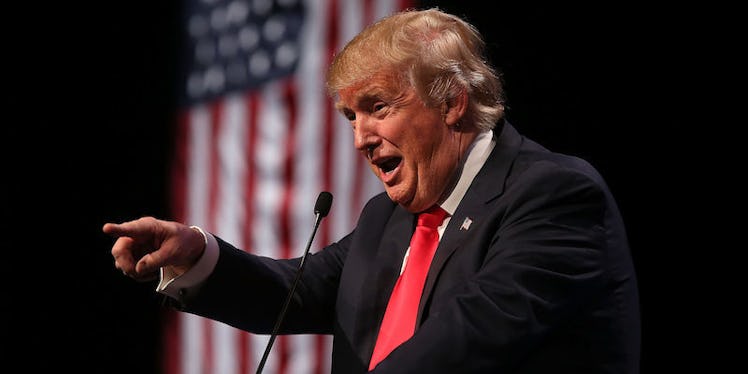
Why Trump Falls Short Of The True Meaning Of The Term 'Political Outsider'
Arriving at your local mechanic’s shop, you’ll probably be greeted by a sweaty old man with several flavors of engine fluid stained into his overalls.
Such a person is the imagined stereotype of car mechanics.
But what happens when the old man charges more because he works slower, or he isn’t up to date on some of your car’s electronic features?
You move on and bring your car elsewhere, perhaps to a younger staffed or more modern auto shop.
Voting is no different.
Today, choosing a president is no different from choosing which store you’d like to bring your business to.
Voting in the United States has become increasingly transactional and party loyalty has become less significant.
If voters are unhappy with what they’re getting from the status quo, they simply move on to another brand whose ideas are more in line with theirs.
Much of this can be attributed to an unprecedented level of distrust in Washington, so rather than choosing familiar names such as a Clinton or a Bush, many voters are looking elsewhere.
This has led to the prevalence of ideological campaigns, and the popularity of candidates who distance themselves from mainstream Washington.
In both 2000 and 2004, Ralph Nader was the fearless outsider.
In 2008 and 2012, libertarians propelled Congressman Ron Paul (R-TX) all the way to the primaries.
For the 2016 presidential race, we find campaigns that are anti-mainstream on both sides of the aisle.
On the left is Bernie Sanders: a democratic socialist. On the right is Donald Trump: a billionaire.
Both candidates promise a breath of fresh air from typical Washington politicians.
But what’s important for us increasingly transactional voters to note is that Donald Trump is not a true political outsider.
Sure he’s no congressman who’s worked in Washington for decades, he's not funded by a super PAC and he’s not beholden to a series of lobbyists like many politicians are.
But he also doesn’t have any ideas that would qualify his campaign as being ideological.
The only values he holds near are hate and fear.
There’s nothing conservative about banning an entire religion, or building a wall between our neighbors and us.
Trump’s campaign is nothing more than a series of normative outbursts, meant to pull on the heartstrings of disgruntled and politically uneducated voters.
There’s no clear platform based on empirical data.
There are no tangible policies that are applicable to the real world.
When listening to Trump debate, you’ll hear nothing but frivolous claims.
His foreign policy sounds something like, “we’re gonna do so much winning, you’ll be tired of winning.”
Trump’s plan for the economy is something along the lines of, “I’m a very successful businessman and everyone loves me.”
Lastly, Trump’s plans for the threat of ISIS, which sings to the tune of “we’re gonna be looking at a lot of different things.”
The real Washington outsiders have proven records.
Their ideological foundations have held like concrete over the years.
Listening to Ron Paul speak about liberty in the 1980s is no different from listening to Ron Paul speak about liberty today. Senator Sanders’ position on equality hasn’t veered off from then Mayor Sanders three decades ago.
Without an ideological foundation to his campaign, Trump doesn’t deserve a spot in the ranks of rogue political outsiders like Nader, Paul and Sanders.
Outsiders are appreciated for their roles of bringing in different ideas that create new discussions. What’s great about democracy is that anyone can be a transactional voter, switch parties or fall in love with a new ideology.
But as with any type of transaction, a brand with a poor product (or in this case, no product) is just a brand.